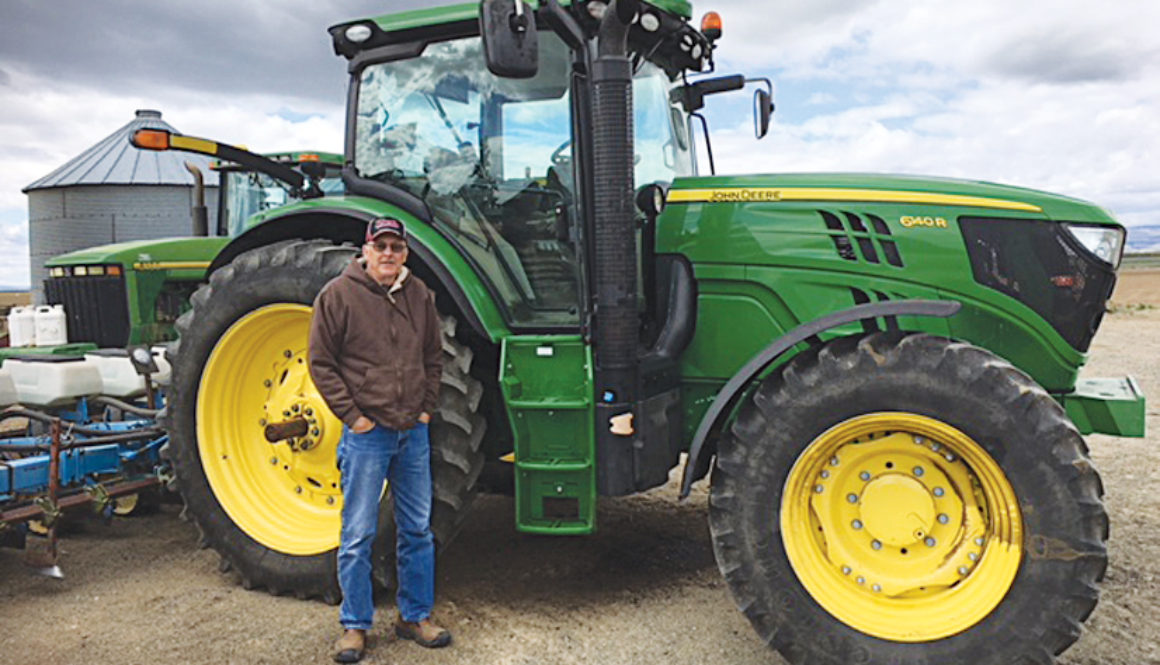Coming Into Place
Introduction
By Nancy Warner
Initiative for Rural Innovation & Stewardship
Most of us who make our home here in North Central Washington came from someplace else. Regardless of when and how we arrived, most of us were drawn here by an enticing mix of opportunities, hopes, and dreams. And when we came, we also brought values, traditions, knowledge, and skills with us – characteristics that have helped shape this region.
That’s something we all have in common. We all have a story – stories that when shared can grow understanding not just about each other but also about our communities.
Gathering those stories and sharing them in ways that can help people connect around success in the region has been the work of IRIS for the past 15 years. One of the more than 300 recorded stories IRIS has collected and archived with the North Central Washington Library is that of David Weber – a descendant of pioneer farmers whose story is one example of why Quincy sees itself as a place of “Opportunities Unlimited.”
Weber Ridge Farms in Grant County
David Weber – Harvest Time, 2017
“It’s a desert, pure and simple”, wrote Lieutenant Thomas Symons in the 1870’s after making a several year study of the Columbia Basin for the Army Corps of Engineers. It’s always been one of my favorite quotes, as it shows the difficulty of not only living here, but of making a living in agriculture as well. It makes you wonder, why would anyone choose to live in the Quincy Valley? Well, I choose to live here, and am still farming some of the same ground as my grandparents who chose to come here 115 years ago, despite the words of Thomas Symons.
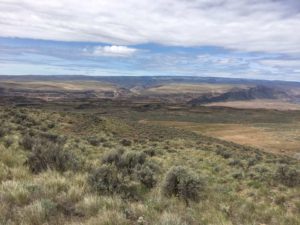
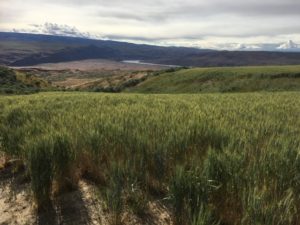
My grandparents probably didn’t know any better. They were German Russians immigrants, who staked everything to come to America in 1902. With deteriorating conditions for German speaking people in Russia, they knew it was time to “get out”. One brother in the family, whom we call Uncle Adam, came first to America in the late 1800’s, thinking to follow many other Germans and settle in Nebraska or the Dakotas. But while on the train, he met a man, probably a developer or promoter of some sort, who told him he really needed to go to Walla Walla, Washington, as the whole region had Homestead Act land for the taking, the last of it in the United States. This meant an opportunity to acquire their own farm land much faster than in other areas. Uncle Adam followed this advice, possibly even taking a loan from the man. After being in Walla Walla for a while, this industrious and entrepreneurial man found land to buy in the Odessa and Ritzville areas, then Quincy. Other family began immigrating, and my grandparents and two small children came over through Ellis Island in 1902, taking the train west to Odessa and arriving in Quincy via horse and wagon.
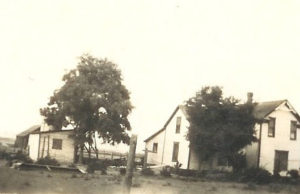
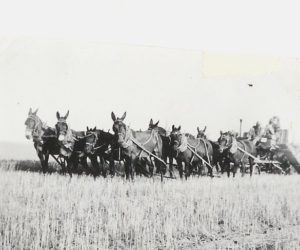
What they must have thought when they arrived here, a place of only around 8 inches of precipitation a year, after leaving the beautiful Russian steppes of the Volga. There is a family story of how my grandmother cried into the pancake batter nearly every morning with the dust swirling around their first home, a tent. She had left her mother and father behind, never to see them again! They certainly didn’t gain an easier life by coming here, but the main difference was in the freedom to choose their own path. They embraced the hardships with a strong faith in God, a knowledge of farming, hard work ethic, extended family that all worked together and an ability to find fulfillment in the simple things of life. They never expected to become wealthy, but rather to work in harmony with the earth to sustain their family, as generations before them had done.
I now reap the benefits of that legacy and of the difficult decision to leave everything they knew behind, and start anew. From them, I carry the pioneer spirit on. This is the place I call home.
David Weber – Harvest Time, 2017

